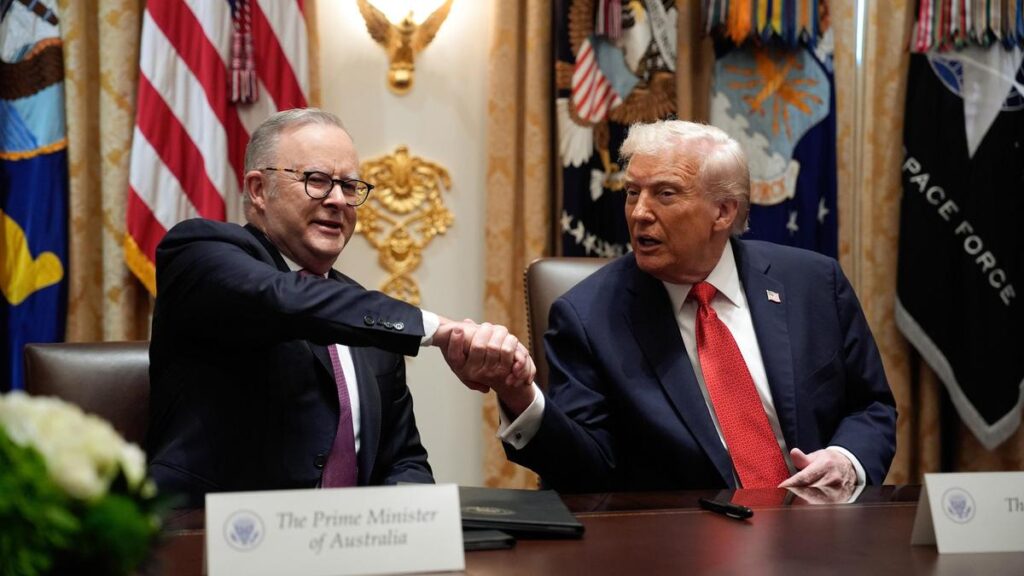
UPDATE: Western Australia (WA) is poised for a significant economic boost following the announcement of a historic $13 billion deal with the United States, led by Prime Minister Anthony Albanese. This development highlights WA’s critical role in the global supply chain for essential minerals, crucial for future technology.
The urgency is palpable as Donald Trump‘s senior trade advisor, Joshua Kroon, visits Perth, signaling that the U.S. is committed to investing heavily in WA’s mining and processing sectors. “We’re just getting started,” Albanese stated, emphasizing the importance of this partnership in circumventing reliance on China, which has dominated the market for over a decade.
The Chamber of Minerals and Energy WA has declared the region as “ground zero” for critical minerals. Anita Logiudice, policy director for CME WA, noted, “Half of Australia’s critical minerals reserves are located in WA, and we are already the world’s fourth biggest producer of rare earths.” The message is clear: WA possesses not only the resources but also the expertise to meet global demands.
However, the path forward is fraught with challenges. The need for a streamlined environmental approval process is urgent, as current regulations create unnecessary delays. Murray Watt has taken steps to address this by confirming that the minister will retain final approval authority, while a new National Environmental Protection Agency will oversee compliance.
Despite this progress, concerns linger. The Greens have raised alarms about potential fast-tracking of coal and gas projects, fearing a lack of oversight could lead to environmental degradation. Community sentiment will ultimately shape these decisions, reinforcing the need for accountability in government.
Opposition leader Sussan Ley has criticized the prolonged approval timeframes, warning that they significantly increase sovereign risk for investors. Yet, her hesitance to fully embrace Labor’s reforms suggests that the complexity of the political landscape could hinder swift action.
The stakes are high. The global economy is shifting toward sustainable technologies, and WA stands at the forefront of this transition. Without immediate action and cooperation among political factions, the opportunity to solidify WA’s position in the critical minerals market could slip away.
As developments unfold, stakeholders and citizens alike must remain vigilant and engaged. The promise of a transformed economy in WA hinges on the ability of its leaders to act decisively and collaboratively. The world is watching, and the time for action is now.







